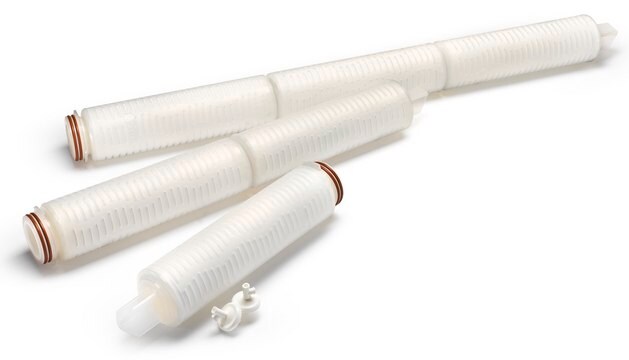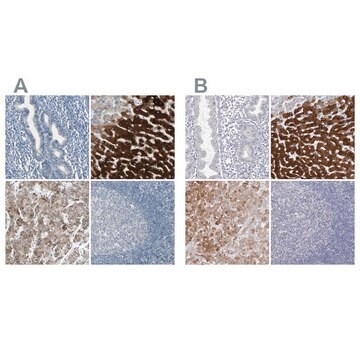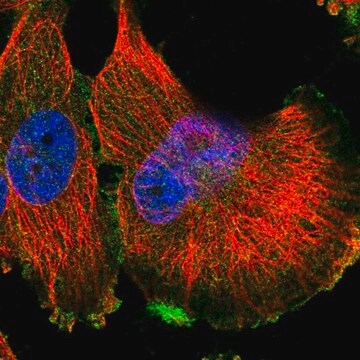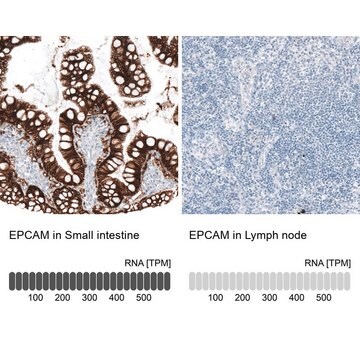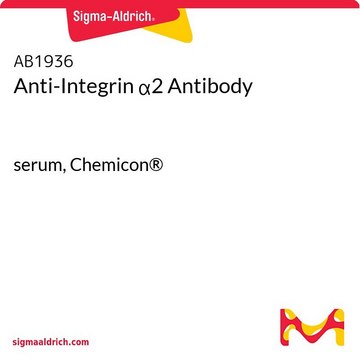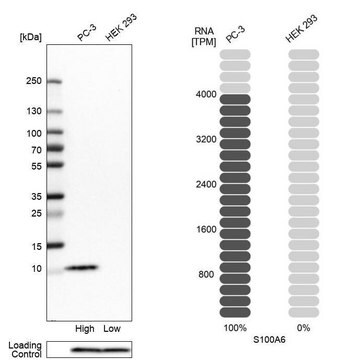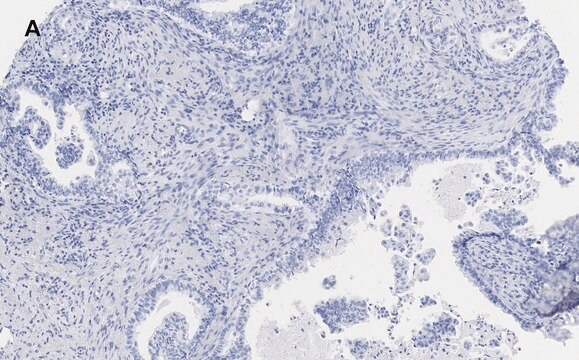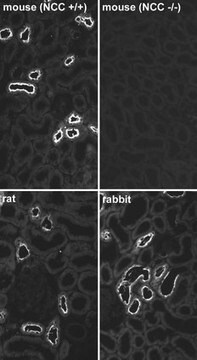CBL251
Anti-Epithelial Specific Antigen Antibody, clone VU-1D9
clone VU-1D9, from mouse
Synonyme(s) :
Epithelial cell adhesion molecule, Ep-CAM, Adenocarcinoma-associated antigen, Cell surface glycoprotein Trop-1, Epithelial cell surface antigen, Epithelial glycoprotein, EGP, Epithelial glycoprotein 314, EGP314, hEGP314, KS 1/4 antigen, KSA, Major gastro
About This Item
IHC
WB
immunohistochemistry: suitable
western blot: suitable
Produits recommandés
Source biologique
mouse
Niveau de qualité
Forme d'anticorps
purified immunoglobulin
Type de produit anticorps
primary antibodies
Clone
VU-1D9, monoclonal
Espèces réactives
human
Technique(s)
immunocytochemistry: suitable
immunohistochemistry: suitable
western blot: suitable
Isotype
IgG1κ
Numéro d'accès NCBI
Numéro d'accès UniProt
Conditions d'expédition
wet ice
Modification post-traductionnelle de la cible
unmodified
Description générale
Immunogène
Application
Immunohistochemistry Analysis: A 1:50 dilution from a representative lot detected Epithelial Specific Antigen in human prostate adenocarcinoma cells.
Cell Structure
ECM Proteins
Qualité
Western Blotting Analysis: 1 µg/mL of this antibody detected Epithelial Specific Antigen in 10 µg of MCF7 cell lyate.
Description de la cible
Forme physique
Stockage et stabilité
Remarque sur l'analyse
MCF7 cell lyasate
Autres remarques
Clause de non-responsabilité
Vous ne trouvez pas le bon produit ?
Essayez notre Outil de sélection de produits.
En option
Code de la classe de stockage
10 - Combustible liquids
Classe de danger pour l'eau (WGK)
WGK 2
Point d'éclair (°F)
Not applicable
Point d'éclair (°C)
Not applicable
Certificats d'analyse (COA)
Recherchez un Certificats d'analyse (COA) en saisissant le numéro de lot du produit. Les numéros de lot figurent sur l'étiquette du produit après les mots "Lot" ou "Batch".
Déjà en possession de ce produit ?
Retrouvez la documentation relative aux produits que vous avez récemment achetés dans la Bibliothèque de documents.
Notre équipe de scientifiques dispose d'une expérience dans tous les secteurs de la recherche, notamment en sciences de la vie, science des matériaux, synthèse chimique, chromatographie, analyse et dans de nombreux autres domaines..
Contacter notre Service technique
